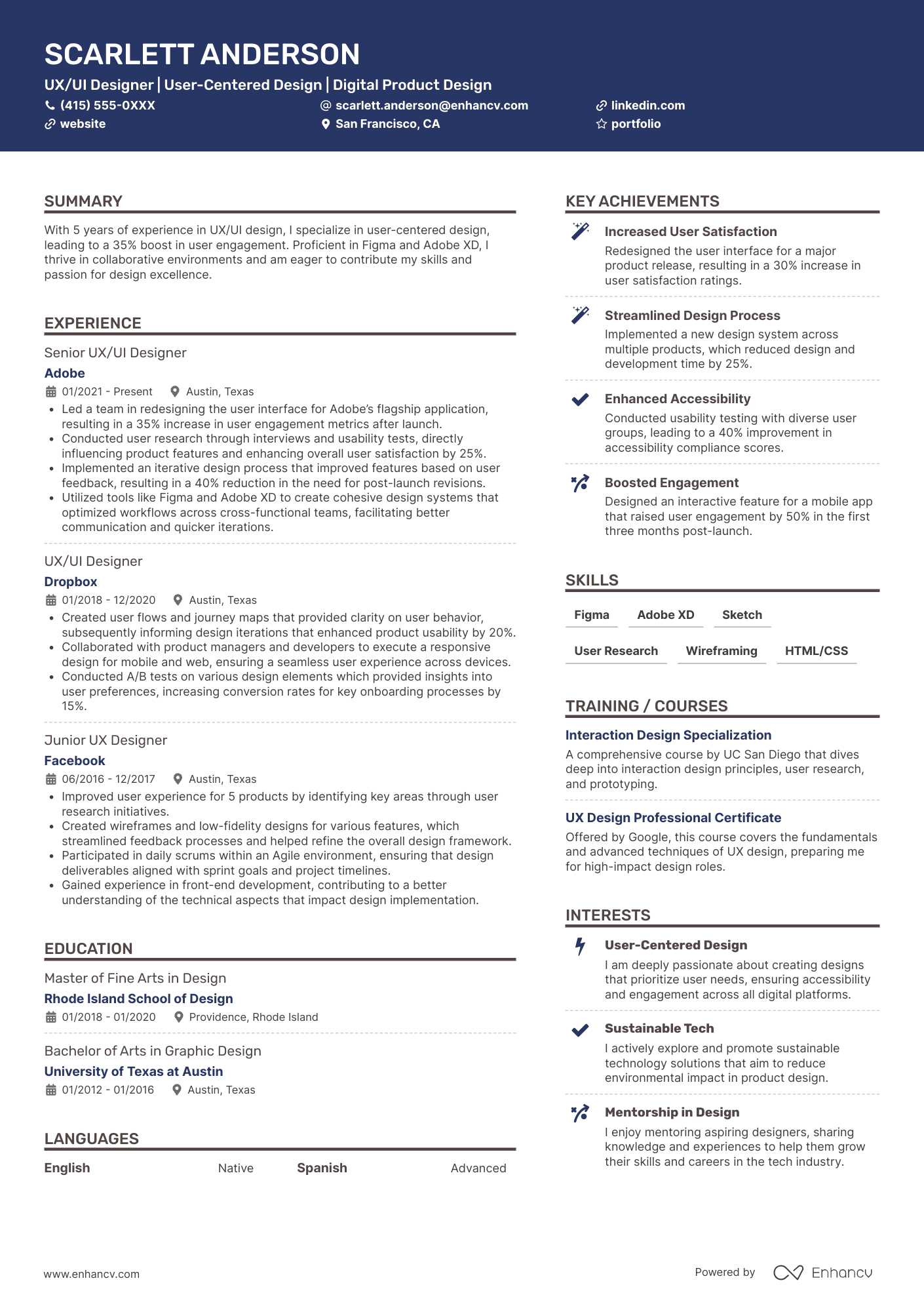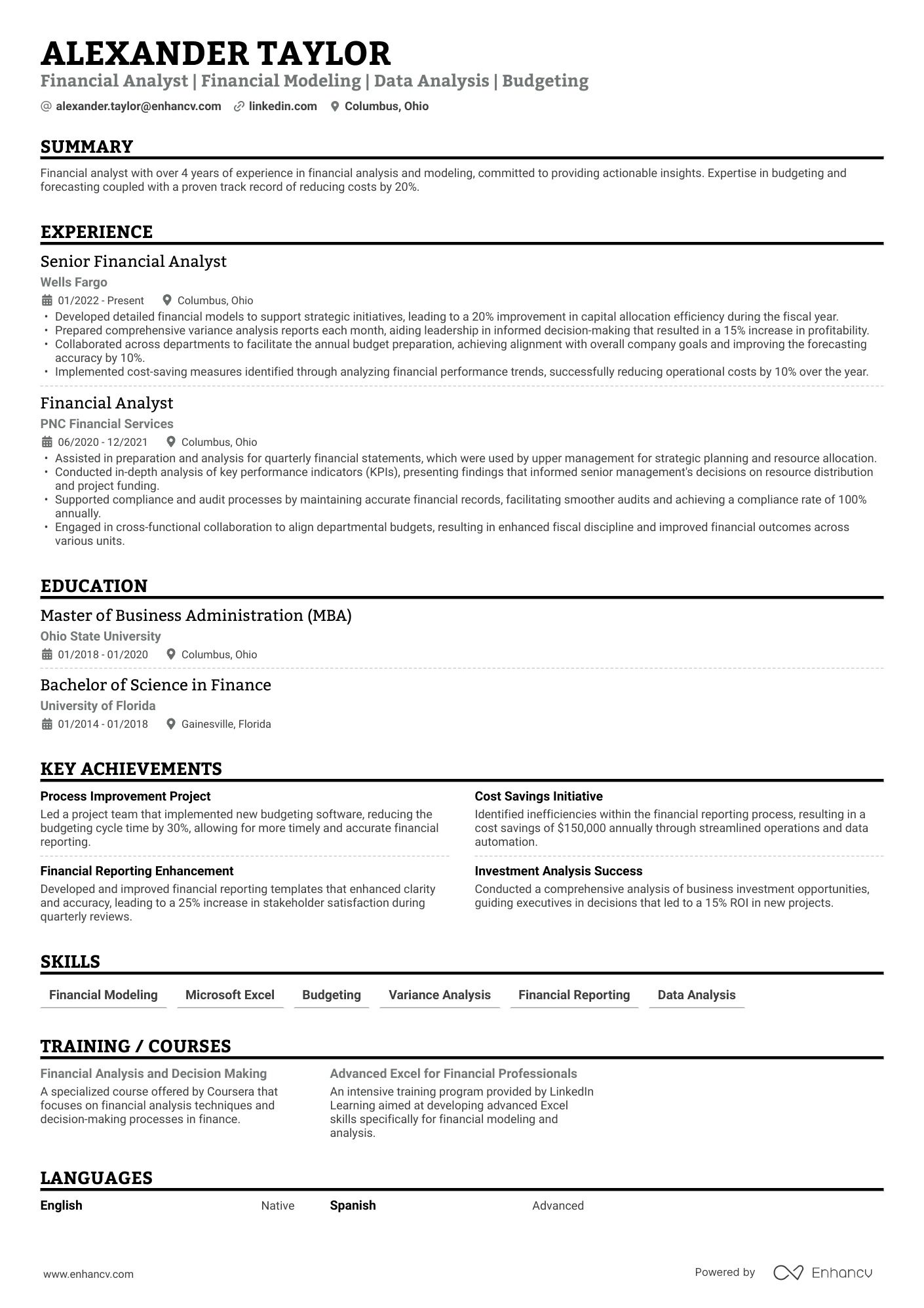Your resume isn’t just about what you say—it’s about how you present it. The style of your resume plays a key role in how recruiters perceive you, often before they read a single bullet point.
Resume style goes beyond basic formatting. It’s about the overall design, tone, layout, and visual impact your resume creates. Whether you’re aiming for a clean, polished look or a more modern, personalized approach, choosing the right one can help you make a strong first impression.
In this guide, we’ll explore the most effective resume styles for 2026, show you how to match them to your industry and career goals, and offer tips to balance creativity with professionalism.
Key takeaways
- Resume style is about visual design and tone—it shapes how your resume feels before a word is read.
- Industries have different expectations: traditional works for finance and law, creative for design, and minimalist for tech.
- Clean design, consistent tone, and thoughtful presentation help your resume look focused and credible.
- Balancing clarity with subtle personalization makes your resume easier to read—and more memorable.
- A resume builder like Enhancv simplifies the process with modern templates, smart prompts, and ATS-friendly formatting.
- Before you submit, make sure your style enhances—not distracts from—your content.
Upload your resume to find out if your style is helping you stand out—or holding you back.
Is your resume good enough?
Drop your resume here or choose a file. PDF & DOCX only. Max 2MB file size.
What does “resume style” mean?
Resume style is about the design, tone, and overall visual impression your resume creates. This is slightly different from resume type, which refers to the structure of your resume—reverse chronological, functional, or combination.
The style shapes how your information is presented, making an impact before a recruiter even reads a single word.
Here’s what it includes:
- Design choices: Fonts, spacing, resume layout, and use of color.
- Tone of voice: Formal, conversational, energetic, or neutral.
- Content emphasis: What stands out visually—skills, roles, or accomplishments.
- Visual flow: How easy it is to scan and navigate your resume.
A strong style shows you’ve thought about not just what to say, but how to say it.
Popular resume styles by industry in 2026
The best resume style depends not just on your experience but also on the expectations of your industry. Some fields favor traditional, no-frills designs, while others welcome creativity and personal branding.
Resume style recommendations by industry
| Industry | Recommended style | Why it works |
|---|---|---|
| Finance and law | Traditional professional style | Emphasizes professionalism, attention to detail, and trustworthiness. |
| Tech and startups | Modern minimalist style | Feels digital-native and emphasizes innovation. If you’re unsure where to start, this is a flexible, widely accepted choice. |
| Marketing and design | Creative or personal brand style | Showcases creativity and visual communication skills. |
| Academia and research | Traditional resume style | Highlights academic achievements and credentials. |
| Administrative and operations | Balanced hybrid style | Combines clear communication with polished presentation. |
Here's what a modern minimalist resume could look like:
Here's a traditional professional resume style ideal for more formal, detail-oriented roles:
Understanding different styles is just the first step. Next, it’s about creating a resume that feels intentional, clear, and tailored to your goals.
Resume styles balancing design, creativity, and professionalism
Creating a strong resume isn’t just about choosing the right style—it’s about balancing clean design with a touch of personality.
Focus on the essentials when crafting your resume:
- Font choice: Use clean, readable fonts like Rubik, Calibri, Lato, or Arial. Stick to 10–12 pt for body text and 13–16 pt for section headers. Keep your font consistent throughout.
- Spacing and layout: Maintain even margins (typically 0.5–1 inch), clear section breaks, and plenty of white space to avoid visual clutter.
- Color use: Stick to subtle accent colors (like navy, charcoal, or muted blue) if needed—avoid anything too bold or distracting.
Heavy visuals or overly creative designs can confuse applicant tracking systems. Keep graphics minimal if you’re applying online.
When you apply creativity carefully—through thoughtful layout, subtle branding, and clear organization—you create a resume that looks modern and refined without sacrificing readability.
Language and tone: finding your voice
Your resume's tone shapes how employers perceive you. It needs to match the expectations of your industry—formal but not stiff, confident but not exaggerated.
Here’s how to get the tone right:
- Use strong, clear language: Action verbs like "led," "designed," and "implemented" help show your impact without sounding boastful.
- Stay consistent: Choose a tone—whether formal, neutral, or slightly conversational—and carry it through your resume and cover letter for a cohesive impression.
- Tailor your tone to your industry: Finance, law, and academia typically require a more formal phrasing. Tech, marketing, and startups often appreciate a direct, energetic style.
Avoid overly casual language like "awesome," "cool," or "rockstar," even in creative fields—it can sound unprofessional.
The right tone not only spotlights your achievements but also shows you belong in the company's environment.
A smarter way to build a stylish, strong resume
The best way to create a resume in 2026 is by using a dedicated resume builder. Tools like Enhancv’s AI Resume Builder are designed specifically for job seekers—they combine professional design, customization, and ATS compatibility in one place.
What makes resume builders the smarter choice:
- Easy-to-edit templates with polished, modern layouts.
- Clean formatting that passes through ATS systems.
- Custom sections and styling to match your industry and goals.
- Built-in prompts and guidance to improve your content.
Some job seekers still use Microsoft Word—especially when an employer requests a .docx file. But for most people, formatting a resume manually in Word is slow, limiting, and prone to visual inconsistencies. It’s simply not the best option if you want your resume to look sharp and perform well.
You don’t need design skills or technical formatting knowledge—a resume builder takes care of that for you so you can focus on your content.
Is your resume good enough?
Drop your resume here or choose a file. PDF & DOCX only. Max 2MB file size.
Pro tips to polish your resume style
A well-crafted resume should look purposeful and be easy to read.
Once you’ve chosen your style, use these final checks to make sure your resume is ready to impress:
- Align spacing and margins carefully: Keep consistent margins (0.5–1 inch) around the page and make sure spacing between sections and lines is even. Uneven spacing can make even strong resumes feel cluttered or rushed.
- Stick to one or two fonts: Choose a clean, professional primary font for body text, and if you want variety, add a secondary font for headings. Keep text sizes consistent—too many font changes can make your resume look disorganized.
- Use color sparingly: Accent colors can help guide a recruiter’s eye, but too much color—or overly bright, clashing combinations like red and neon green—can feel distracting and unprofessional. Stick to muted tones that complement each other.
- Preview your resume on multiple devices: Open your resume on a computer, tablet, and phone to catch formatting issues before you submit it. A design that looks good on your laptop may break when viewed elsewhere.
- Run it through an ATS scanner: Even with modern ATS improvements, it’s smart to check that your structure and content are easy for systems to parse. A resume that's heavy on graphics or unconventional formatting might still confuse older tracking systems.
- Ask yourself, “Does this resume look like the job I want?”: For example, a digital marketing resume should use a modern layout with subtle personal branding elements—not overwhelming graphics, bright colors, or unusual fonts that make the document harder to read.
A well-styled resume feels focused, polished, and easy to navigate—qualities employers notice right away.
Conclusion
The right resume style helps you do more than list your experience—it shapes how employers see you before they even start reading. Whether you choose a traditional, modern, or personalized style, the goal is always the same: to make a strong, clear first impression that matches the job you want.
Focus on clean design, consistent tone, and thoughtful presentation. Choose the right resume-building tool to make the process easier, and double-check your style supports—not distracts from—your content.
Make one that's truly you.





